The perfect pair of thermal underwear will keep you warm, and feel comfortable while also wicking away sweat.
After all, layering is the simplest way to protect your body from extreme cold weather. The base layer is the one closest to your body. Pay attention to it and you will have nothing to worry about.
The advantages of picking the right thermal underwear as a base layer?
- Sweat-wicking
- Comfort, without sacrificing the sex appeal of your clothing.
- Increased freedom of movement for outdoor activities.
- Can be worn in layers – which improves the insulation of the clothing. More air is trapped using several thin layers than by a bulky single layer.
- Potential energy savings at home as you won't need to turn the thermostat up to stay warm.
When you buy thermal underwear, you want performance, durability, and comfort under any conditions. You don't want to skimp on it.
In today's article, I'm breaking out exactly what to look for when buying thermal underwear. We'll be covering:
- Thermal Underwear Fit
- Thermal Underwear Fabric
- Thermal Underwear Function
- Thermal Underwear Style
- Thermal Underwear Care
#1 Thermal Underwear Fit
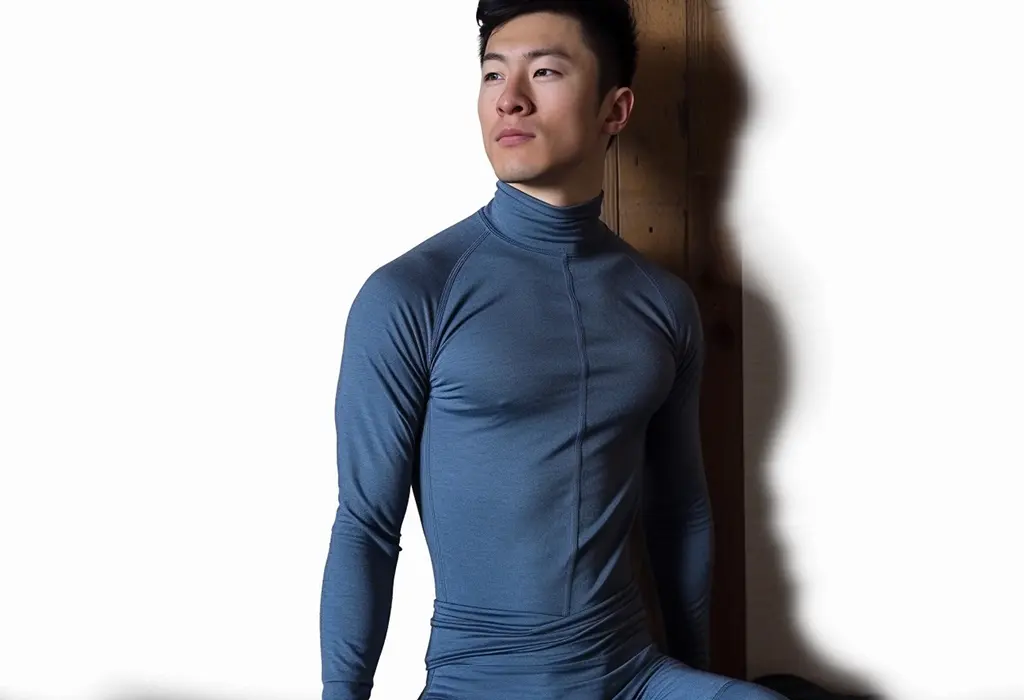
The perfect thermal underwear will support but not constrict.
After all, thermal underwear functions as a second skin – creating an insulating layer between your body and the fabric.
For warm or cold conditions – your underwear needs to be fitted correctly – otherwise, it just won't do its job!
In cold weather, snug-fitting underwear traps the heat generated by your body and boosts comfort.
If a garment is advertised as an athletic fit, expect it to be snug.
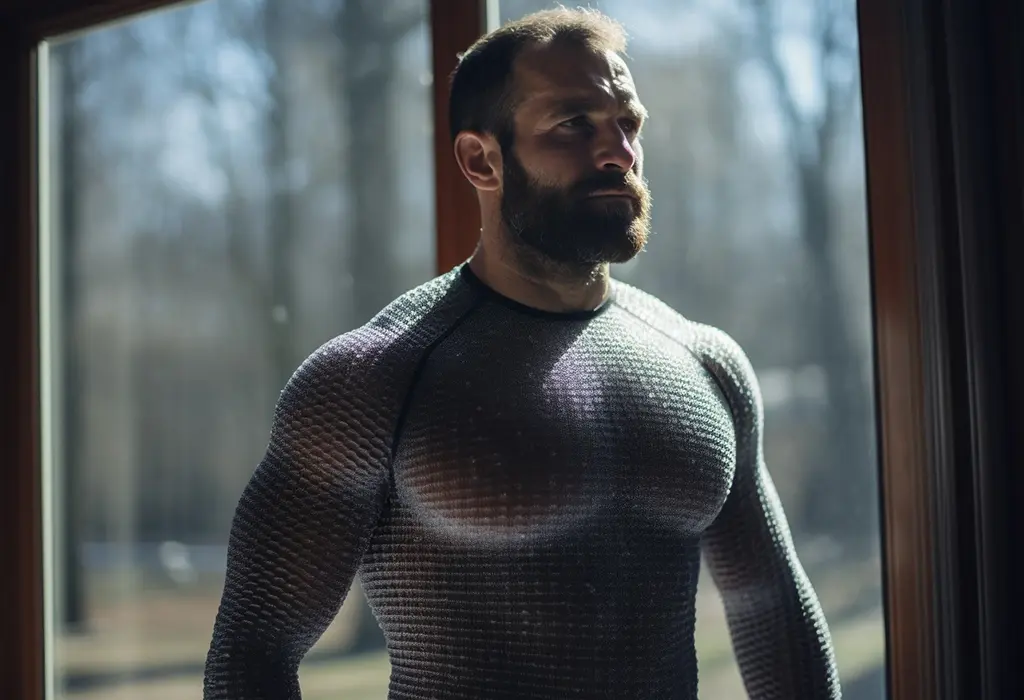
If it fits poorly – the underwear is likely to create hot pockets instead of distributing warmth event, making you feel some discomfort. Form-fitting underwear avoids this predicament allowing you to comfortably wear layers over it.
Form-fitting underwear avoids this predicament allowing you to comfortably wear layers over it.
Choose a garment with a slick outer surface so that your other clothing doesn't get stuck on it.
#2 Thermal Underwear Fabric
There are two components to picking the right fabric – weight, and material. The weight of the garment will help you understand the sort of warmth it will provide. In general, heavier and thicker fabrics are better suited to colder climates.
Similarly, with material, the denser the weave and plusher the surface; the warmer a garment is likely to be.
Thermal Underwear Weight
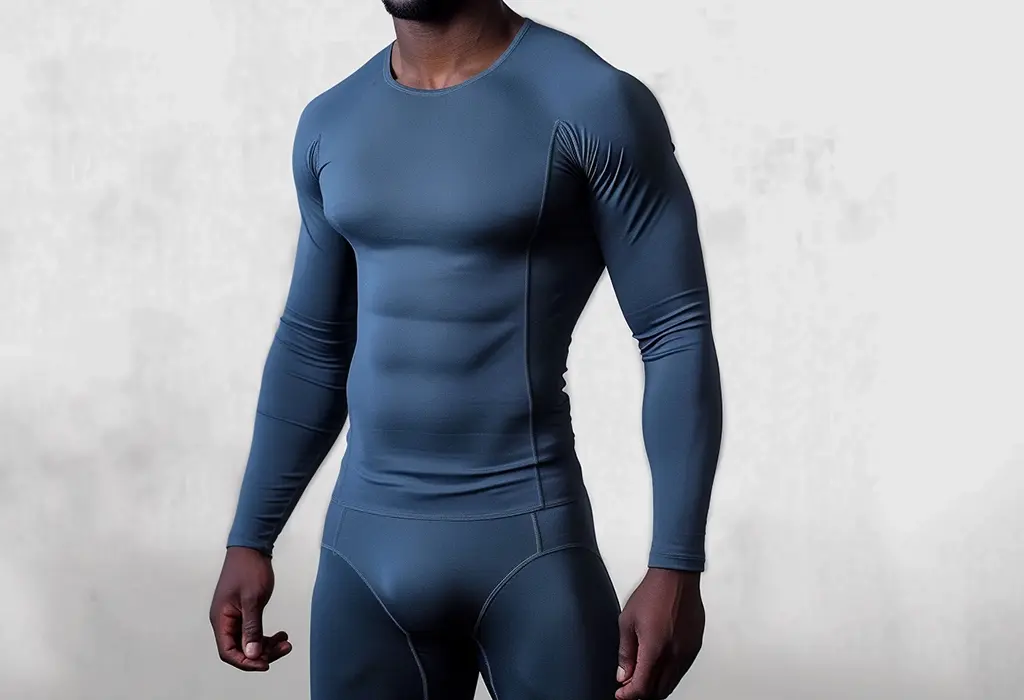
Each fabric weight offers different advantages. Here are some general guidelines for picking the right weight for your base layer:
- Ultralightweight: Also called micro weight, suitable for mild to cool conditions.
- Lightweight: Preferable for cool to moderately cold weather and for a high level of aerobic activity.
- Midweight: Suitable for moderately cold to cold weather. Midweight fabrics are the most versatile and can be worn for a variety of recreational and sports activities.
- Heavyweight: Suitable for extreme cold and frigid temperatures when more warmth is required to regulate the body temperature. Heavier fabrics are suitable for winter sports in the snow.
Common Fabric Materials For Thermal Underwear
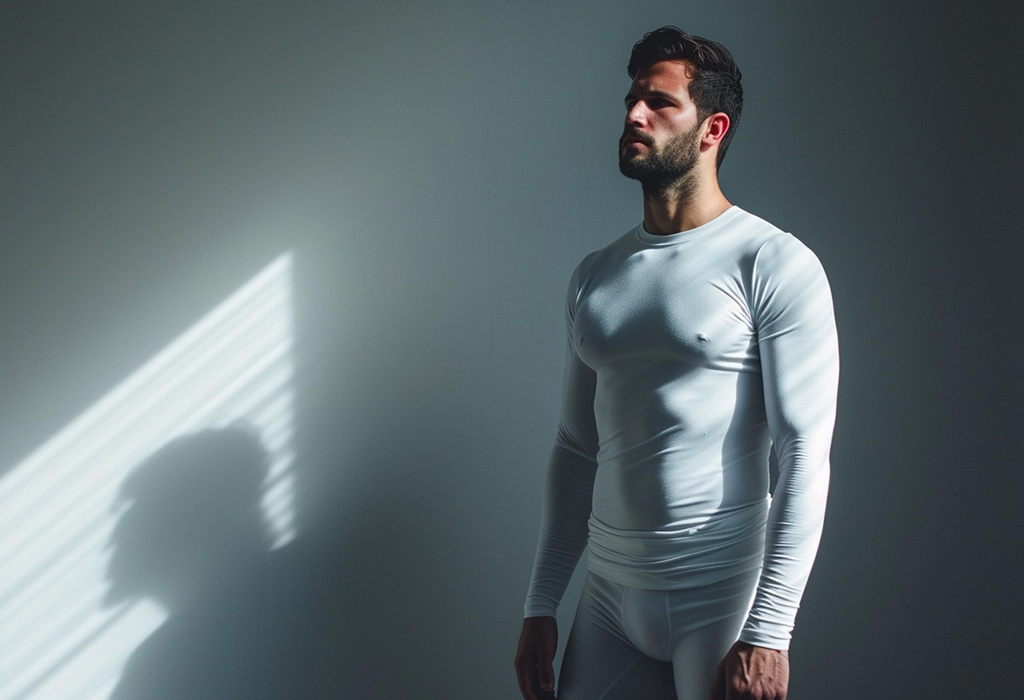
The material of your thermal underwear needs to be luxuriously soft and yet extraordinarily resilient to keep up with whatever weather conditions you experience.
- Synthetic Thermal Underwear Fabric – Made especially for extreme cold conditions, synthetic fabrics are the best for thermal underwear. Polyester, spandex, lycra, and nylon are often combined with other natural fibers to provide the right amount of moisture-wicking properties and heat retention required.
- Wool Thermal Underwear Fabric – Natural fiber merino wool cleverly balances your body temperature and provides great moisture management, no matter what the conditions.
- Silk Thermal Underwear Fabric – Silk is a lightweight option for activities in moderately cool weather. Wear it for recreational snowsports and indoor lounging. Silk provides a luxuriously soft texture without adding bulk. The drawback of this fabric is that it transports moisture away from the body more slowly.
- Cotton Thermal Underwear Fabric – Unlike merino wool, synthetic fabrics, or silk, cotton retains perspiration. It leaves you feeling chilled, wet, and clammy. Despite the affordable pricing, cotton is the least preferred option for thermal underwear comfort.
The warmth-to-weight ratio of synthetic fabrics like acrylic and polyester are 3-8 times higher than knitted or woven fabrics like wool or cotton.
#3 Thermal Underwear Function

What is your main purpose in buying thermal underwear?
Do you need it for everyday use to provide warmth, facilitate freedom of movement during physical activity, or conserve body heat in frigid temperatures?
I know – it feels strange to put this much thought into something that goes underneath your clothes. But, trust me, get the wrong style of underwear for the function you desire and you'll regret it big time.
Thermal Underwear Features
- Warmth – Thermal underwear regulates your body temperature, keeping you warm and dry. The weight of the fabric determines the level of warmth provided by the underwear.
- Stretch – Cotton tends to be restrictive in its tendency to stretch uniformly. Something with a 4-way stretch. Cotton fails. Wool has some stretching properties.
- Bacteria Resistance – When you can't shower daily, bacteria resistance is imperative.
- Loft – Low-density weaves in the fabric ensure that the garment keeps its shape while trapping air between the layers. Fabrics with good loft keeps your body heat with the least amount of space and the most amount of flexibility. They insulate body heat and prevent the cold from reaching your body.
- Moisture Wicking – Moisture wicking is essential when selecting thermal underwear because the purpose of wearing thermal underwear is to stay warm and to stay warm – you have to stay dry.
The thermal-preserving property of a base layer drastically reduces when wet – either through external moisture or through sweat. The body tends to lose heat quicker during the rest phase following physical activity and the wet base layer brings the body temperature even lower, resulting in hypothermia or even worse, death.
#4 Thermal Underwear Styles
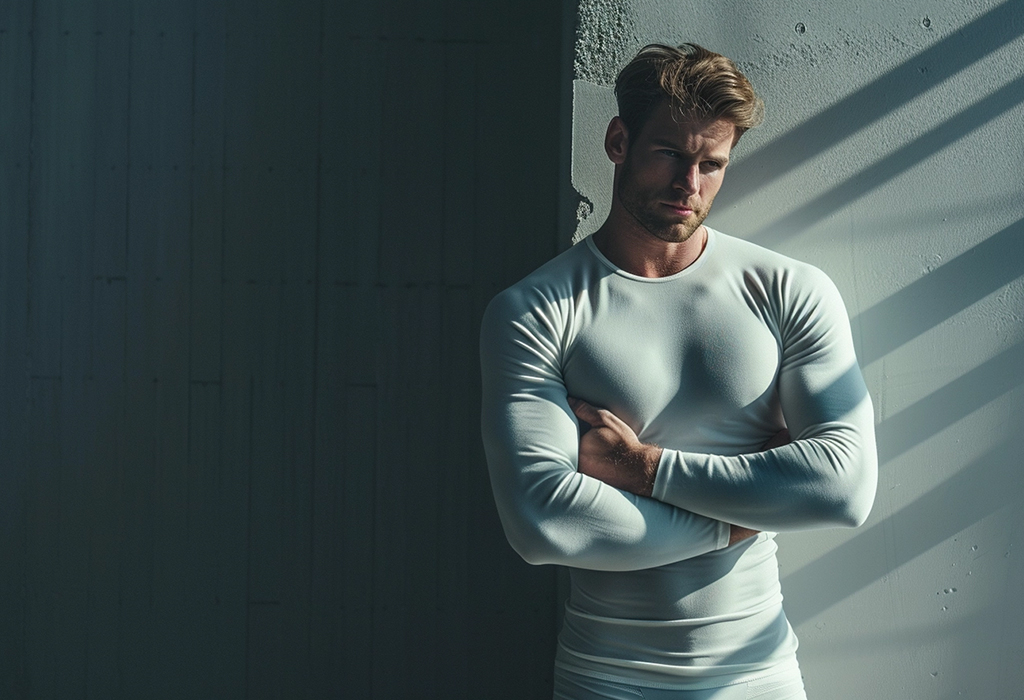
A base layer for cold climates could be anything from t-shirts to briefs, to long-sleeved tops and full-length bottoms.
However, there are only two styles of thermal underwear:
- One-piece thermal underwear suit (or Long Johns)
- Two-pieces bought separately or as a set which includes a top (either long-sleeved or a vest) and a lower body piece covering the waist to the ankles.
Both kinds can be very close fitting and contoured to fit your body or they can be looser fitting.
It all depends on the type of fabric e.g. with a cotton blend, the thermal underwear is likely to be looser fitting whereas the microfibers are more form fitting and tend to keep their shape better than the cotton types.
Long Johns
Long Johns are a style of long underwear that are characterized by their length and tight fit. Long Johns are typically made from a Cotton/Polyester blend or 100% Cotton.
What sets Long Johns apart from regular underwear is their length. They typically come down to the mid-thigh or knee, making them ideal for layering under pants or skirts in colder weather. While they can be uncomfortable to wear for extended periods of time, their thermal properties make them ideal for outdoor activities in cold weather.
Long Johns are available in a variety of colors, but the most popular are white and black. Some brands offer Long Johns in fun prints or with embellishments. Whether you choose plain or fancy, Long Johns are a great way to keep warm all winter long!
Two-Piece Thermal Underwear Sets
In contrast to Long Johns, two-piece thermal underwear sets come in a wider variety of styles. The most popular style consists of a long-sleeved shirt and leggings. These sets are easier to put on and take off than Long Johns, and they offer more flexibility in terms of layering. Two-piece thermal underwear sets are available in a variety of materials, including cotton, wool, and synthetics.
Often, two-piece thermal underwear sets will feature a vest instead of a long sleeve shirt. The style you choose is ultimately down to personal preference – long sleeves are warmer while vests offer more breathability.
#5 Thermal Underwear Care
Read the manufacturer's note for specific care instructions. To get the most out of your garment, pay attention to these guidelines:
- Cotton – Wash in cold water to prevent the fabric from shrinking. Cotton takes longer to dry. Allow it to air-dry for best results. For faster results, lay the garment flat on a towel. Avoid hanging them up as the fabric starts to stretch over time and lose its shape.
- Silk – For silk thermal underwear, hand-wash or use the delicates option on the washing machine.
- Wool – The requirements to wash wool are similar to those of cotton fabrics. Was in cold water and dry on a towel for faster results.
- Synthetic Fabrics – These fabrics are easy to care for and dry quickly. For best results, wash them inside out. It is safe to wash them with warm water. They are dryer-safe and maintain the original shape even if they are hung out to dry.
Click below to watch the video – 5 Tips to Purchase Thermal Underwear









